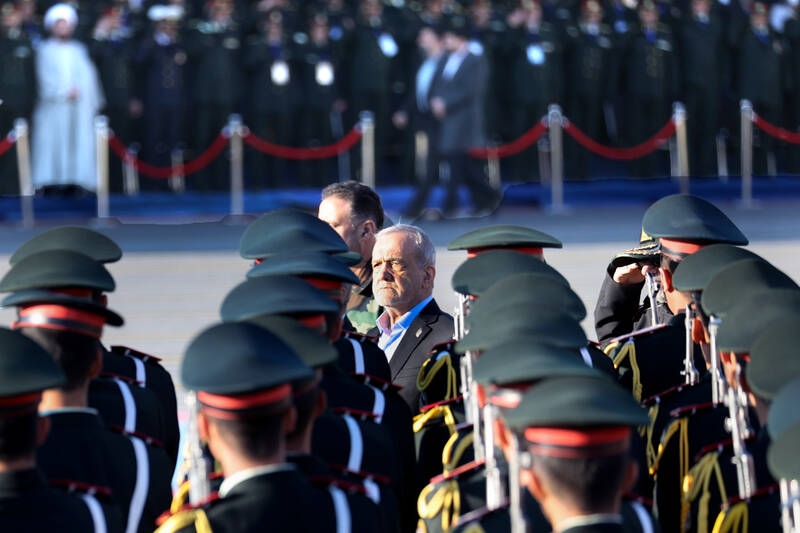UN resolution on Gaza imposes 'illegal trusteeship' over Palestinians, says top legal expert
UN resolution on Gaza imposes 'illegal trusteeship' over Palestinians, says top legal expert

The UN Security Council resolution that endorses US President Donald Trump's 20-point plan for Gaza is in breach of the fundamental norms of international law, and is therefore legally invalid, a top international law expert told Middle East Eye.
On Monday, the Security Council approved Security Council Resolution 2803, which backs the creation of an international stabilisation force and places Trump in supreme control of Gaza. It also names his "board of peace" as the entity that will oversee the implementation of the plan for a period of two years. The involvement of former UK Prime Minister Tony Blair in this has been widely touted.
Ralph Wilde, a leading international law academic and practitioner, told MEE that the resolution attempts to codify "trusteeship" over Gaza, a colonial arrangement that breaches the Palestinians' right to self-determination.
"Trusteeship conducted by individual states in the colonial era was a self-serving sham invoked in bad faith, serving as an alibi to rationalise colonial rule, which could be justified as a 'civilising mission'," Wilde said, speaking from Ramallah in the occupied Palestinian territories.
"But the consequence of colonial liberation struggles after World War Two was the adoption in international law of the right of self-determination. This was a repudiation of trusteeship."
Wilde, a professor of International Law at UCL, is the author of an award-winning book on international territorial administration and international trusteeship over people. He said that he has been told that his book is being used as the "manual" for the Gaza trusteeship.
"This horrifies me," he said.
Wilde said that the concept of "trusteeship over people" was adopted by Europeans for colonial rule over Africa at the Berlin Conference in the late 19th century; by the League of Nations after the First World War for the Mandate territories, including the Mandate in Palestine; and by the UN after World War Two for the Trust Territories and all other non-settler-colonies.
"Trusteeship assumes a world divided between ‘child-like’ people deemed incapable of looking after themselves - a characterisation now applied to the Palestinian people of Gaza - and ‘adults’ - Donald Trump, Tony Blair and others - deemed able to rule over not only their own people, but also others," he said.
Last year, Wilde argued before the International Court of Justice (ICJ), on behalf of the Arab League, that the Palestinian people’s legal right to be free of the Israeli occupation is unconditional.
The court adopted his view in its landmark advisory opinion of 19 July 2024, condemning Israel’s occupation of Gaza and the West Bank as inherently illegal, and reaffirming the Palestinian people’s unconditional right to self-determination.
'Replacing an abusive trustee with another form of trusteeship is not self-determination, and would be illegal'
- Ralph Wilde, law expert
"Replacing an abusive trustee with another form of trusteeship is not self-determination, and would be illegal," he told MEE.
Even if Palestinian representatives accept the plan, it remains unlawful, he argued, in the same way Oslo appeared to legitimise certain elements of the illegal occupation of the West Bank.
Any such supposed "agreement" permitting the trusteeship over the Palestinian Gaza Strip would be "void", he explained, because it was enabled through egregious coercion - the unlawful use of force, aggression, exercised in the Palestinian territory captured and controlled since 1967 - and seeks to enable something, the trusteeship, that violates a fundamental norm of international law, namely the right of self-determination.
Breach of lawful powers
Wilde also explained that the UN Security Council has not, through its executive authority under international law, "legalised" the trusteeship.
He noted that it's true that the UN Security Council has the power under the UN’s founding Charter to provide legal authority for something that would otherwise be illegal, and its decisions in this regard are binding on all UN members. He also recalled that the council in the past purported to provide legal authority for international trusteeships in Bosnia and East Timor.
However, Palestine is not a UN member state, because the Security Council itself cannot agree to admit it due to the threat of a US veto.
Additionally, the Security Council's power is limited by the purposes and principles of the UN Charter, Article 1, which states that the adjustment and settlement of disputes must be carried out "in conformity with the principles of justice and international law".
This is not the case in the UN Security Council Resolution 2803 on Gaza.
"As the trusteeship is not in conformity with the international legal rule of self-determination, and this legal rule has peremptory (fundamental, non-derogable) status, in purporting to authorise the trusteeship, the Council is acting beyond its lawful powers - ultra vires," he said. "As such, the authorisation is void."
Wilde said the UN Security Council's resolution is reminiscent of what the Council of the League of Nations did over a century ago in contravention of its own Covenant, when it purported to allow a UK trusteeship to implement the Balfour Declaration commitment to establishing a Jewish state in Palestine, instead of implementing Palestinian statehood, as required by that Covenant. The authority purportedly given to the UK to do this was similarly void, said Wilde, who made this point in his submission at the ICJ last year.
"Just as then, trusteeship is back here in Palestine, and, again, with a potentially British character to it in the form of Tony Blair, so too, again, the executive organ of the global organisation is attempting to legalise this by acting beyond the lawful limits of its constituent instrument," he said.
The UN resolution passed by a vote of 13-0 with abstentions by China and Russia.













